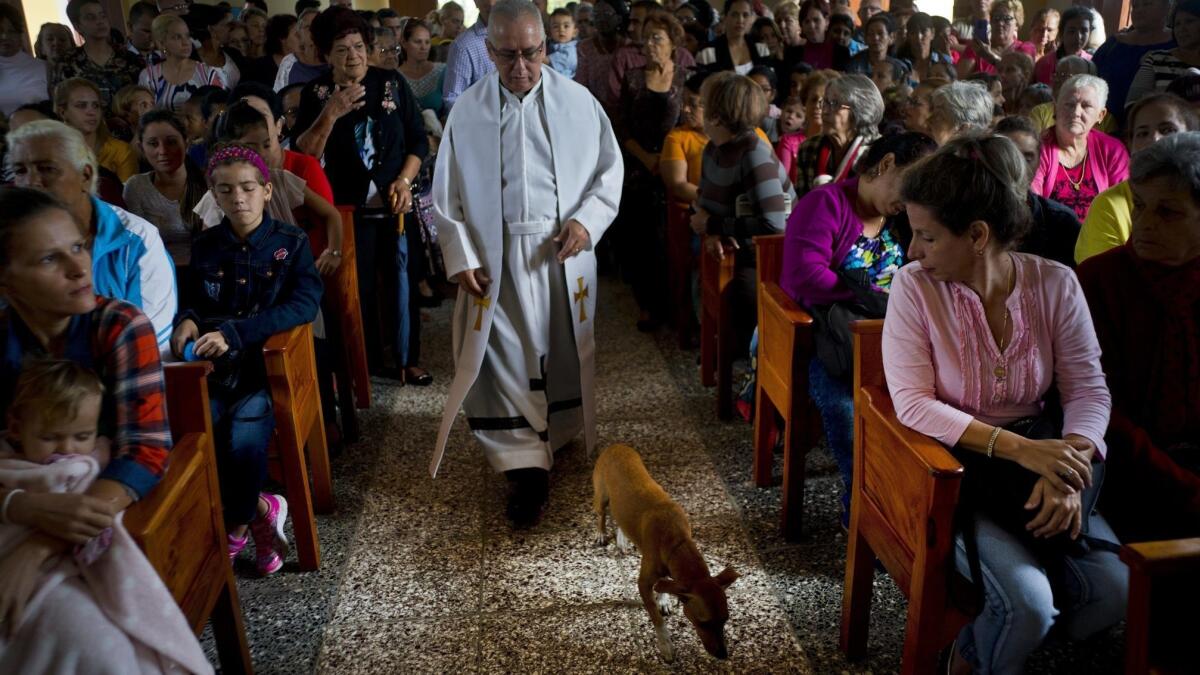Crossing the Red See: First new Catholic church in Cuba since the 1959 revolution opens

- Share via
Reporting from Sandino, Cuba — The first new Roman Catholic church to be completed in Cuba since the country’s 1959 socialist revolution was inaugurated Saturday with the aid of a Florida congregation, in a ceremony that observers called a hopeful sign amid international tensions.
The Parish of the Sacred Heart of Jesus in the western town of Sandino is one of three Catholic churches authorized by Cuba as part of a warming between the Vatican and the island’s communist government.
It is the first to be finished, thanks in large part to financial aid from the members of St. Lawrence Church in Tampa, Fla. Tensions between Cuba and the U.S. have risen in recent weeks as the Trump administration has threatened new sanctions on Cuba and its ally Venezuela.
“This is a bridge between Tampa and Cuba,” said the Rev. Ramon Hernandez, a Cuban-born priest who lives in Tampa and returned for the ceremony.
The Cuban state and the Catholic Church clashed in the first decades after the revolution, when many priests worked against the new communist-ruled state and were expelled by the government, which also took over many churches.
President Fidel Castro began easing restrictions on religion in the 1990s. Popes John Paul II, Benedict and Francis have all visited the island since then.
A new church in Havana is also being used for worship but remains structurally incomplete. A third sanctuary in Santiago has yet to begin significant construction.
The opening of the new church in Sandino was particularly significant because the town is home to families relocated from Cuba’s Escambray region, where residents fought the communist government in the first years after the revolution.
“This is a historic event for the church,” said church member Juan Hidalberto Hernandez. “Many families and their descendants left their saints behind and didn’t have a church to pray in.”
The Tampa congregation donated about $95,000 for the new building, which holds some 200 worshipers and was built on land granted by the state.
More to Read
Sign up for Essential California
The most important California stories and recommendations in your inbox every morning.
You may occasionally receive promotional content from the Los Angeles Times.











